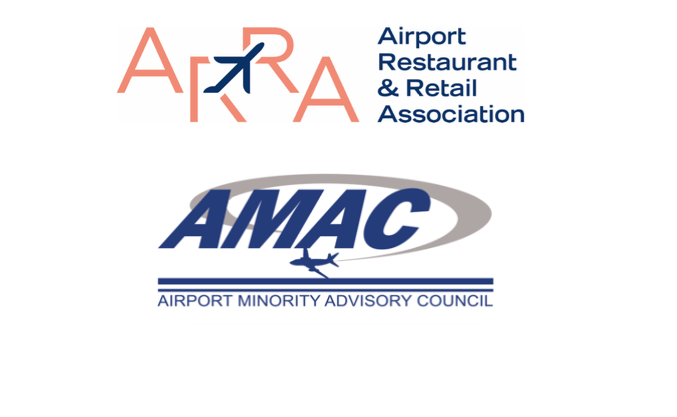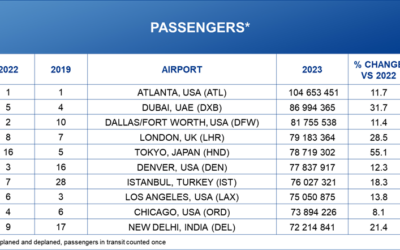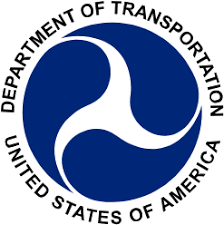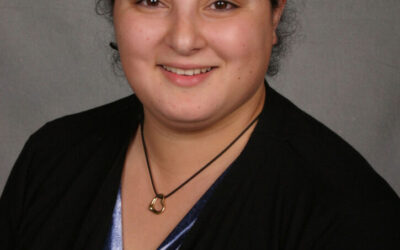The situation for airport concessionaires is so dire, and the outlook so gloomy, that executives are calling for a “reset,” with new business structures that reflect the changed business environment in the wake of the COVID-19 pandemic.
In the weekly teleconference hosted jointly by the Airport Restaurant & Retail Association (ARRA) and the Airport Minority Advisory Council (AMAC), Chris Korge, chairman and principal at Newslink, said the reality of the situation is “finally really hitting us in the face after 30 days of a just unthinkable situation.”
Before the coronavirus hit, Korge said, the rising costs of doing business resulted in tighter margins and lower EBITA. Many companies experienced a shrinking of cash reserves and cash flow as they invested their cash in the growth of their business. With the pandemic, those formerly strong businesses “today probably have very little value and have negative net worth,” he said.
“What’s really alarming to me at this point – and I believe in being just straightforward about it – is that there’s some lack of common sense or understanding of what is going on in our industry,” Korge continued. “That’s why I believe so much in the fact that we have to reset the table in this industry. Common sense would tell you that if the airlines could not pay their employees and pay their obligations and had to get a bailout and grants…,who on earth would think that the concessionaires could continue to pay employees…? It’s just impossible.”
Korge’s assessment of a dire situation was echoed by other panelists on the call.
Michael Levine, CEO and founder of Tastes on the Fly, didn’t mince words, calling the current situation a “disaster.”
Both Levine and George Walker, president and co-founder of Air Ventures, said they’ve seen mixed responses from airports. “I’ve seen several airports really step up to the plate and provide immediate relief on the one hand,” Walker said. “On the other hand, I’ve been quite surprised with the lack of response or minimal relief from several other airports throughout the country. As concessionaires, we are partners with the airports. They know sales have been decimated. They fully understand the situation and know there’s zero revenue that makes it nearly impossible to turn around.”
Panel participants said minimum annual guarantees and percentage rents were negotiated with airports based on data that suggested a healthy travel environment. “We built this these models on economics that simply don’t exist today in terms of cost, in terms of risk and in terms of passengers,” noted Corliss Stone-Littles, managing member, Corliss Stone-Littles, LLC. She called on airport partners to revisit the terms. “As partners, the same way we built this together, we need to reexamine it together,” she said.
Clarence Daniels, past chairman and CEO of CMS Hospitality, suggested airports “put a pause on contracts” until traffic returns to 75 percent of pre-COVID-19 levels.
“Nobody knows when the pandemic will end,” he said. “We don’t know when there’ll be a vaccine. We don’t know what’s going to happen. So we really need an objective measure. And I say 75 percent of pre-COVID enplanements is a point at which you could start paying again.”
Panelists also discussed employment issues. The federal government is requiring recipients of aid to return their businesses to employment levels of February, a requirement that was deemed by panelists to be completely unrealistic. Stone-Littles said that if all available money is targeted to retaining employees, “we’re just going to go out of business in a different way,” because operations and maintenance, debt service, and other costs will not be met.
A Different Airport Experience
Right now, it’s anyone’s guess how and when passenger traffic will return to pre-COVID levels. Panelists suggested that now is the time to reassess the business model, keeping in mind that passenger demands will be different than they were just a few months ago.
“I honestly think we need to re-look at the model,” Levine said. “I think we should reimagine whatever we’re going to get back to gradually as an airport experience needs to be improved. From my view, this is the time for us to dig in and, and work with all stakeholders and partners [to assess], is it the same model or is it time for a different model? Are we going to look at innovative technologies?
“I have been a proponent of high-touch over high-tech,” Levine continued. “Well, if we’re not using high-tech going forward, we’re going to be left behind. Nobody wants to touch anything. Apple Pay is a guarantee. Free standing, self-order, self-pay kiosks are going to be in play, and dine-at-gate may get revived. These are things that are going to have to be looked at and thought through.”






